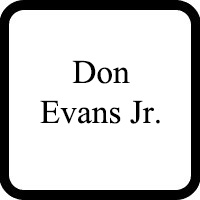Winnabow RICO Act Lawyer, North Carolina
Sponsored Law Firm
-
 x
x

Click For More Info:
-
The Law Offices of Richard L. Cooper, P.A.
848 Brickell Avenue Suite 800 Miami, FL 33131» view mapDWI/DUI, Drug Trafficking, Felony Nationally Ranked Top 40 Under 40
With Richard L. Cooper you can expect a trusted confidant who will work diligently to fully understand your case and determine a road map to help you regain control of your life.
800-756-2781
Not enough matches for Winnabow RICO Act lawyer.
Below are all Winnabow Criminal lawyers.
Don Tolbert Evans
✓ VERIFIEDAccident & Injury, Real Estate, Criminal, Motor Vehicle, Estate
Firm has 35 years experience, continuing a family tradition of lawyers stretching back 100 years.
Firm has 35 years experience, continuing a family tradition of lawyers stretching back 100 years.
Bruce A. Mason
✓ VERIFIEDCriminal, Juvenile Law, Accident & Injury, Traffic
Bruce A. Mason grew up in Fairmont, West Virginia. He graduated magna cum laude from West Virginia University in 1986 with a Bachelor of Science degre... (more)
Dustin RT Sullivan
DUI-DWI, Criminal, Felony, Misdemeanor
Status: In Good Standing Licensed: 18 Years
FREE CONSULTATION
CONTACTClarke Speaks
Criminal, Traffic, Civil Rights, International Trade, Insurance
Status: In Good Standing
Jordan M. Duhe
Criminal, Motor Vehicle, Lawsuit & Dispute, Divorce
Status: In Good Standing Licensed: 11 Years
Alden B. Cole
Commercial Real Estate, Social Security, Criminal, Personal Injury
Status: In Good Standing Licensed: 26 Years
Steve Wright
Pharmaceutical Product, Criminal, Insurance, Medical Malpractice
Status: In Good Standing
Alexander M. Hall
Workers' Compensation, Criminal, Personal Injury, Malpractice, Social Security
Status: In Good Standing

 Richard L. Cooper Miami, FL
Richard L. Cooper Miami, FL AboutMiami Attorney at Law
AboutMiami Attorney at Law ServicesCriminal Defense
ServicesCriminal Defense


